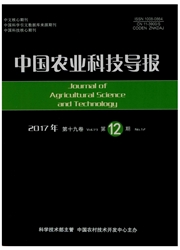

 中文摘要:
中文摘要:
采用改进的TOPSIS法和障碍度模型,构建了以城市土地利用综合效益为目标层、以"经济效益–社会效益–生态环境效益"为准则层、以36个代表性指标为指标层的城市土地综合效益评价指标体系,对广州市2006~2014年的土地利用状况进行综合效益评价和障碍因子诊断.结果表明:(1)广州市土地综合效益经历了低级效益–中级效益–良好效益–优质效益的发展历程.(2)2012年以前,经济效益是影响广州市土地综合效益的主要因素,其中地均财政收入(C2)、地均社会商品销售额(C9)影响最大;2012年以后,社会效益和生态环境效益成为影响广州市土地综合效益的主要因素.(3)从未来发展趋势来看,社会效益和生态环境效益对土地综合效益影响不断加大,广州市未来要提高城市土地综合效益必须从社会效益和生态效益入手.
 英文摘要:
英文摘要:
Evaluation of urban land use comprehensive benefit and diagnosis of its obstacle indicators would be greatly helpful for sustainable land use. A concept of urban land use comprehensive benefit is introduced and a theoretical model established to assess the land comprehensive benefit. The evaluation index system is built with the indices of economic benefits, social benefits and environmental benefits, with TOPSIS method and obstacle degree model used. Results show(1) that the degree of land comprehensive benefit generally experiences four development processes from low performance, medium, good to superior and(2) that the obstacle degree of land economic benefits is maximum, such as average revenue(C2), and the average social commodity sales(C9). After2012, the obstacle degree of social benefits and environmental benefits of land was maximum; and(3) that in the long run, the effect of social benefit and ecological environment benefit on land comprehensive benefit is increasing continuously.
 同期刊论文项目
同期刊论文项目
 同项目期刊论文
同项目期刊论文
 期刊信息
期刊信息
